The cameras were still rolling, capturing every nuance of the moment — my mother’s triumphant smile, her grip on my hand, and the stunned silence that followed my exclamation. It was as if the whole world had paused, waiting for my next move, and I was acutely aware of the eyes fixed on us.
Advertisement
I could see the confusion etched on the faces of the crew and the spectators gathered around. My heart raced, but my mind was clear. This was not just a reunion; it was a spectacle, orchestrated by the woman who had disowned me a decade ago.

A camera filming an event | Source: Getty Images
Growing up, my passion for art was the one thing that offered me solace, a refuge from the cold, disapproving gaze of my mother. Her disdain for my dreams had been a constant shadow over my childhood, culminating in the night she cast me out. That night, standing alone with nothing but my sketches clutched to my chest, I had felt an overwhelming sense of loss and betrayal. Yet, it was that very night that had set me on the path to where I stood today, an acclaimed artist with the world watching.
Advertisement
As she stood there in front of the cameras, claiming credit for my achievements, a whirlwind of emotions threatened to overwhelm me. Anger, bitterness, and a deep-seated hurt from years of neglect and ridicule surged within me. But beneath it all, there was also a strange sense of vindication. Here I was, having proved her wrong in the most public way possible, and her attempt to insert herself into my narrative felt like the final validation of my success.
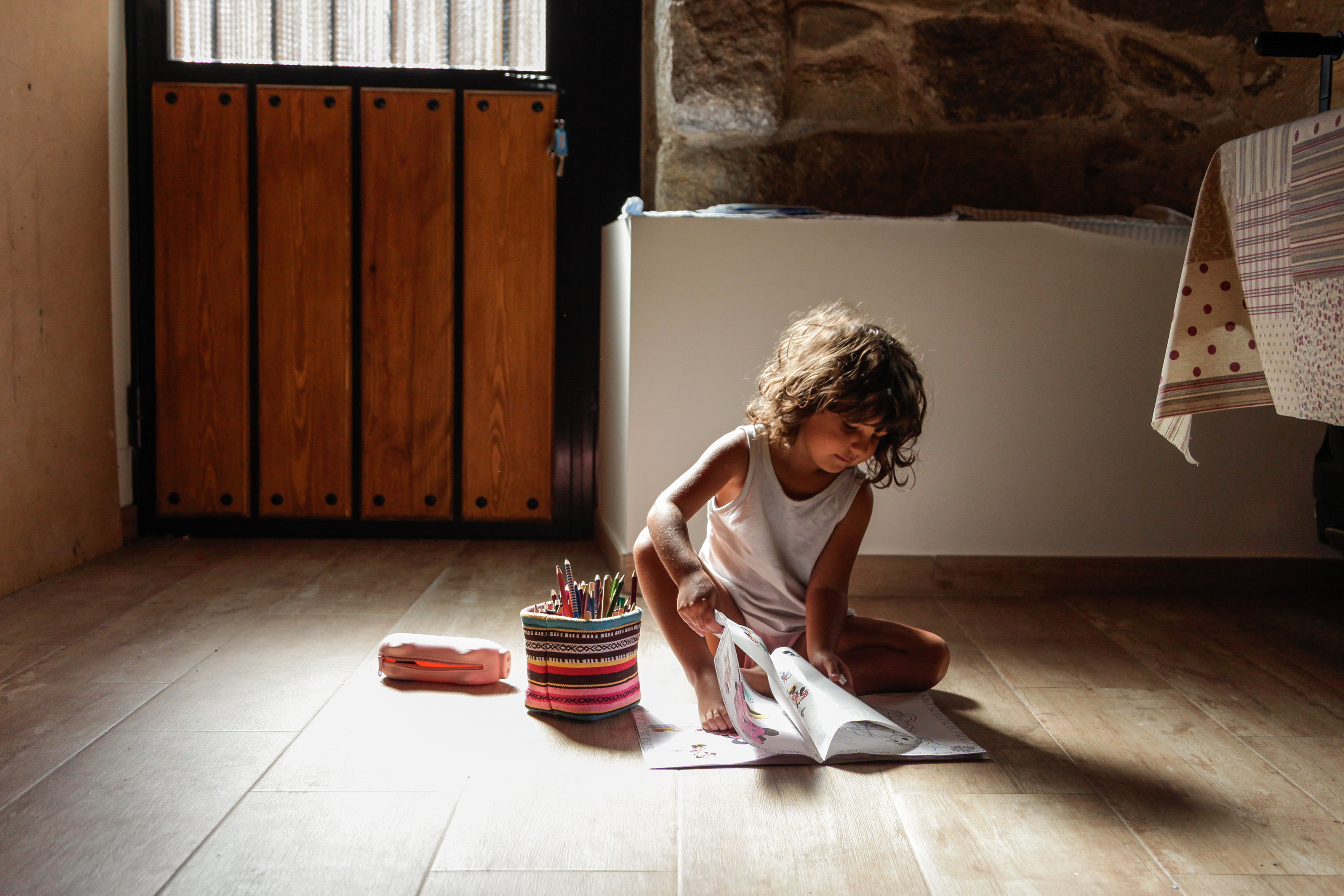
A kid playing with art supplies | Source: Getty Images
“Mommy! Thank God you’re here!” I had said, my voice dripping with a sarcasm that only those who knew me well could detect. But to everyone else, to the cameras and the eager audience, it was a joyful reunion. My mother soaked in the attention, her eyes gleaming with a mix of greed and pride. “You owe me,” she had whispered, her words barely audible over the murmur of the crowd. And in that moment, a plan began to form in my mind — a way to turn this encounter to my advantage, to finally confront the past and perhaps find a sense of closure.
Advertisement
The crowd was buzzing with excitement, their murmurs a cacophonous backdrop to the drama unfolding. Reporters jostled for position, their cameras trained on us, capturing every moment. I could see my agent on the sidelines, a look of concern etched on his face. He had been with me through the highs and lows, knew the pain my mother’s abandonment had caused, and understood the complexity of emotions I was grappling with.
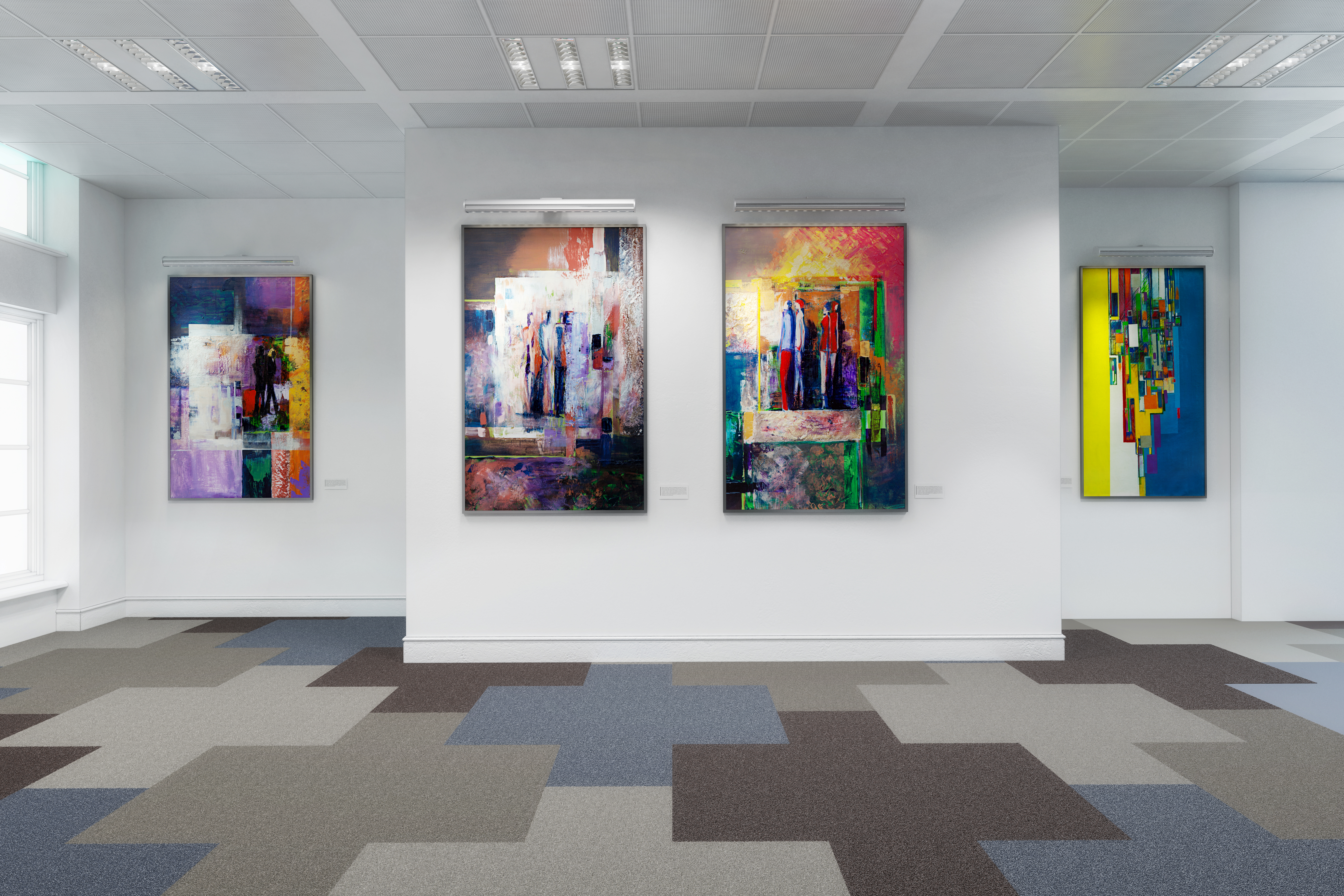
An art exhibit | Source: Getty Images
Yet, as our eyes met, I offered him a reassuring nod. This was my moment to face the demons of my past, to use the platform I had been given to expose the truth, to reveal the real story behind my success.
As the initial shock wore off, I turned to the interviewer, a well-known journalist who had been mid-question when my mother had made her dramatic entrance. “Sorry for the interruption,” I said, my voice steady despite the turmoil inside. “My mother has a knack for making an entrance. But let’s not stray from the story here — the journey of an artist who started from nothing.”
Advertisement

A man being interviewed | Source: Getty Images
I glanced at my mother, her hand still clinging to mine, and smiled. It was a smile that masked years of pain, a smile that said I had survived despite her, not because of her. “Yes, let’s talk about that journey,” I continued, turning back to the camera, ready to tell my story, my truth. And as I began to speak, tracing the path from my lonely nights sketching by streetlight to the glitzy galleries that now showcased my work, I could feel the power of the narrative shifting. This was not just a tale of artistic success; it was a story of resilience, of triumph over adversity, and of a son who rose above the rejection of his mother to find his place in the world.
I led the way to the centerpiece of my exhibition, my heart pounding in my chest with a mix of anticipation and anxiety. The crowd followed, their curiosity piqued, cameras and phones ready to capture the revelation. My mother, still basking in the unwarranted attention and adulation, was oblivious to the storm that was about to break.
Advertisement
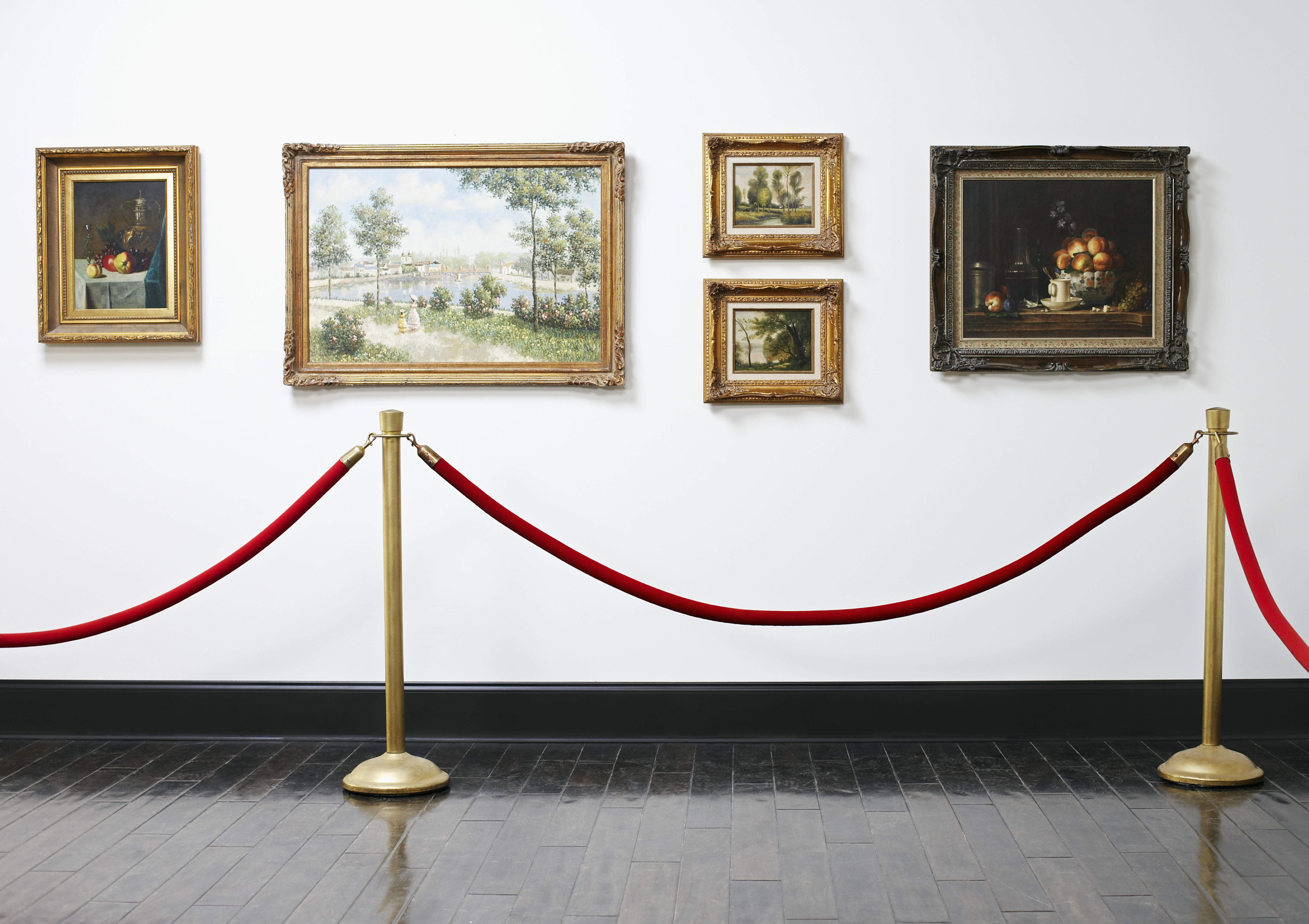
An art exhibit | Source: Getty Images
The painting was veiled, a dramatic touch I had not planned but now seemed providentially fitting for the occasion. As I reached out and pulled away the cloth, a hush fell over the crowd. The artwork revealed was stark, powerful, and unapologetically truthful — a vivid depiction of a woman, her features twisted into a visage of malevolence, hands wreathed in flames as they tore apart a child’s drawings. The symbolism was not lost on anyone; the collective intake of breath was audible, a physical manifestation of the shock that rippled through the audience.
“That’s who my mom really is,” I said, my voice steady but laden with emotion. The silence that followed was heavy, fraught with the tension of a thousand unspoken words. My mother’s face, a mask of shock and indignation, turned a deep shade of purple, her outrage palpable. But there was no turning back now; the truth of my childhood, of her neglect and cruelty, was laid bare for all to see.
Advertisement

A palette with paint | Source: Getty Images
“And here is my grandma,” I continued, my voice softening as I gestured to another painting. This one was a stark contrast to the first — a portrait of warmth, kindness, and unwavering support. My grandmother, with her gentle smile and open arms, was the antithesis of the figure depicted in the previous painting. As I spoke of her role in my life, of the love and encouragement she provided, my grandmother herself stepped forward from the crowd, her presence a comforting balm to the raw emotions exposed by the unveiling.
The moment I embraced her, the applause that broke out was spontaneous and heartfelt, a collective outpouring of support and understanding from the audience. It was a validation of my journey, of the choices I had made, and of the strength I had drawn from my grandmother’s unwavering faith in me.
Advertisement

A smiling older woman | Source: Getty Images
Later, in the quiet aftermath of the exhibition, I did what I had promised myself. I sent my mother a check, a tangible acknowledgment of the life she had given me, but also a final settlement of any perceived debt. It was a gesture not of reconciliation but of closure, a way to sever the ties of guilt and obligation that she had sought to impose upon me.
Sending that check was perhaps one of the hardest things I’ve done, not for the monetary value it represented, but for the symbolic act of cutting that final thread. It was an admission that while she had indeed given me life, the nurturing of that life, the encouragement of my talents, and the success I had achieved were owed to others — to my grandmother, to my own resilience, and to the countless individuals who had supported me along the way.
Advertisement
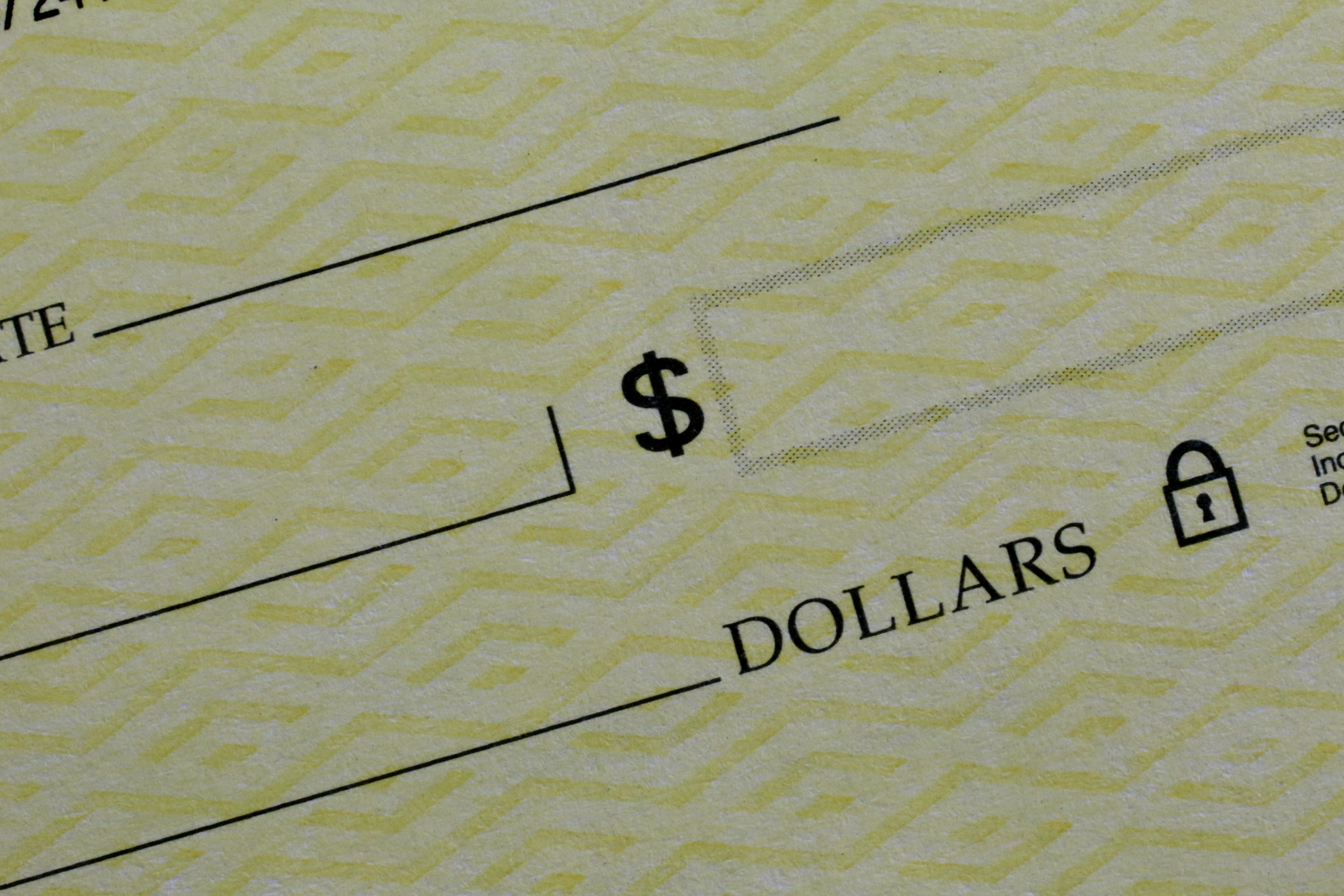
A paper check | Source: Getty Images
The exhibition that night was more than a showcase of my art; it was a declaration of my independence, a public reclaiming of my narrative. In exposing the harsh realities of my childhood, I had laid bare my vulnerabilities, but in doing so, I had also found a strength I didn’t know I possessed.
As the last of the guests departed and the lights dimmed, I stood among my creations, a sense of peace enveloping me. The path to this moment had been fraught with challenges, but as I looked around at the art that adorned the walls — each piece a testament to my journey — I knew that every struggle had been worth it. In confronting my past, I had not only found closure but had also opened the door to a future unencumbered by the shadows that had once threatened to engulf me.
Advertisement
Do you think I did the right thing? Let us know on Facebook!
Click here to read about a dad who didn’t contribute a cent to his kid’s college degree, but told people he had paid for the whole thing.
My Father Was Bragging about Paying for My College When He Did Not Give a Cent, So I Gave Him a Reality Check
The weight of my father’s expectations and control over my life felt like a shackle, dictating the terms of my existence with a severity that left little room for my own dreams and aspirations. His obsession with academic perfection, exemplified by his invasive “random checks” and demand for nothing less than excellence, became the backdrop of my childhood. The constant pressure to meet his impossible standards, the comparison to my cousin’s more supportive and less demanding upbringing, only served to deepen the chasm between us.
Determined to escape the oppressive shadow of my father’s ambitions, I made a choice that would alter the course of my life—I decided to finance my own education. This decision, born out of a desperate need for autonomy, marked the beginning of a challenging yet liberating journey. It was a path fraught with late-night shifts, exhausting double duties, and the relentless pursuit of academic success, all undertaken without a word of support or acknowledgment from the man who claimed to have orchestrated my achievements.
Advertisement

A woman smiling during graduation | Source: Pexels
The charade of his financial contribution was maintained until a family gathering, where, under the guise of casual conversation, my father’s fabricated narrative of sacrifice and support was publicly praised. Seizing the moment, he boasted of the “small fortune” he had supposedly invested in my education, a lie so audacious it left me reeling. Yet, it was in this moment of blatant deceit that a plan of retribution began to form.
My graduation became the stage for my silent rebellion, a carefully orchestrated moment of truth designed to expose the facade of my father’s involvement. As I accepted my diploma, I seized the opportunity to thank myself for the sacrifices I had made, a declaration of self-reliance that stunned the audience and shattered my father’s illusion of paternal generosity. The presentation that followed, a candid showcase of the reality of my college experience, served as undeniable proof of my solitary struggle and triumph.
Advertisement
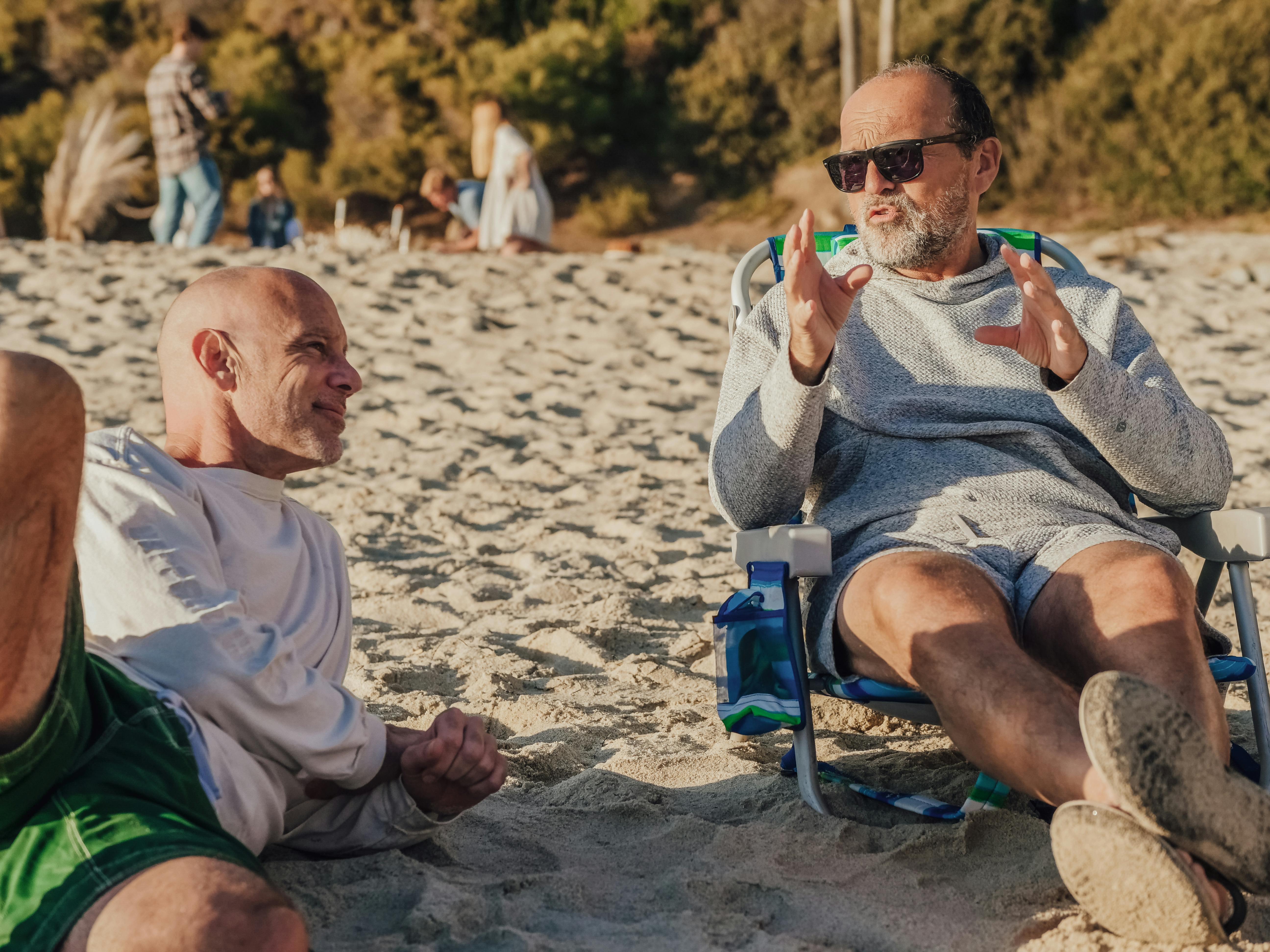
A middle-aged man boasting about something to another man at the beach | Source: Pexels
The aftermath of my revelation was a mixture of shock, admiration, and a palpable sense of betrayal among the family members who had been deceived by my father’s lies. The exposure of his falsehoods, while embarrassing for him, served as a cathartic release for me, a public reclamation of my story and efforts. It was a moment that transcended mere vindication, offering a profound sense of empowerment and closure.
In contrast, Almada’s tale, another narrative of familial expectations and personal liberation, parallels my journey yet culminates in a different resolution. Where my story ends with the exposure of deceit and a personal victory over imposed limitations, Almada’s narrative extends beyond her individual success to encompass a reconciliatory family dynamic. Her demand for equal support, a mirror of the financial backing her brothers received, sets the stage for a transformation fueled by acknowledgment and change rather than revenge.
Advertisement
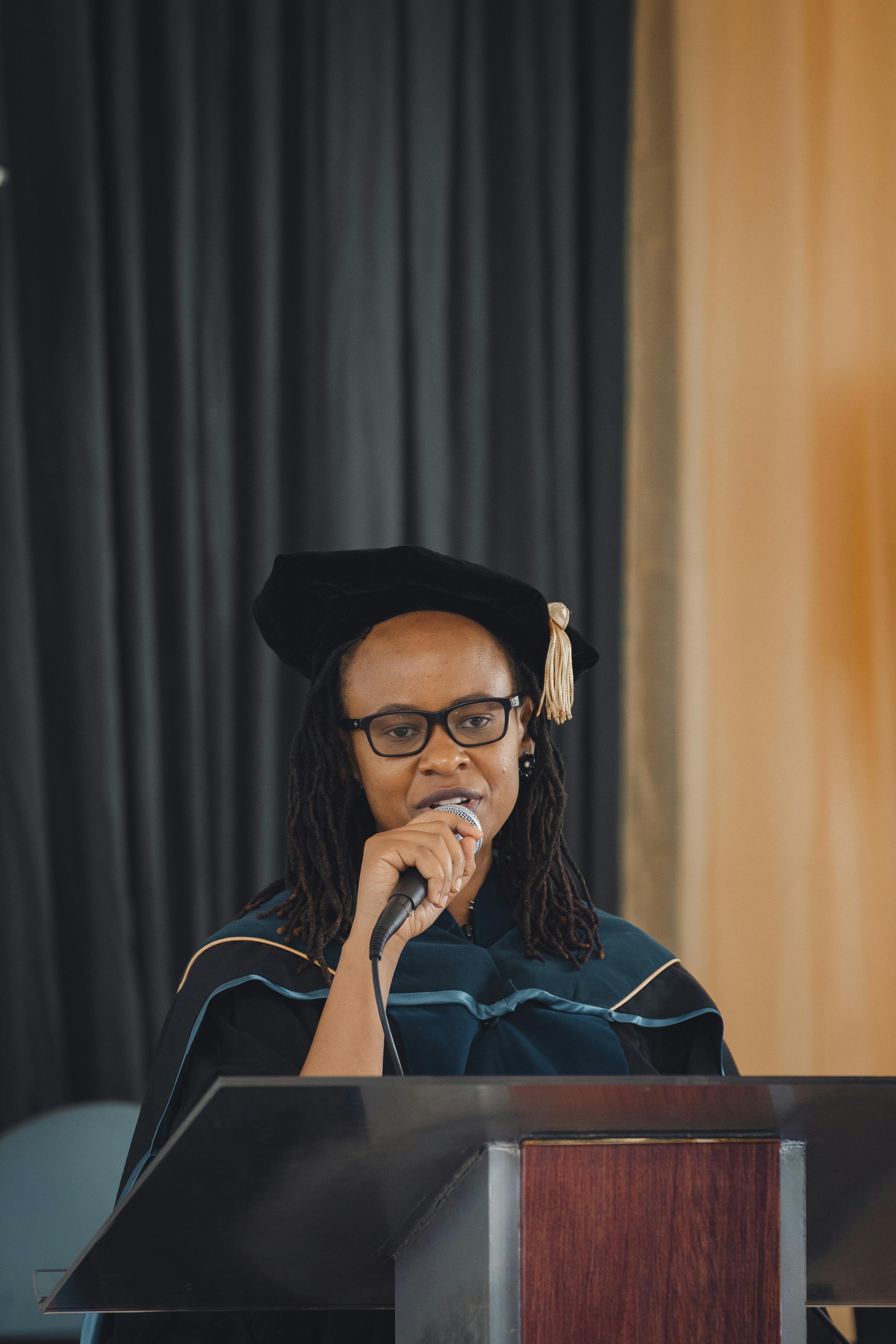
A college graduate speaking on a microphone on stage | Source: Pexels
The gesture of her brothers, a symbolic act of support and acknowledgment of her achievements and struggles, marks a turning point in their family’s legacy. It signifies a departure from entrenched gender roles and expectations, paving the way for a more inclusive and supportive family environment. This evolution, from confrontation and challenge to understanding and acceptance, highlights the possibility of growth and reconciliation within familial relationships.
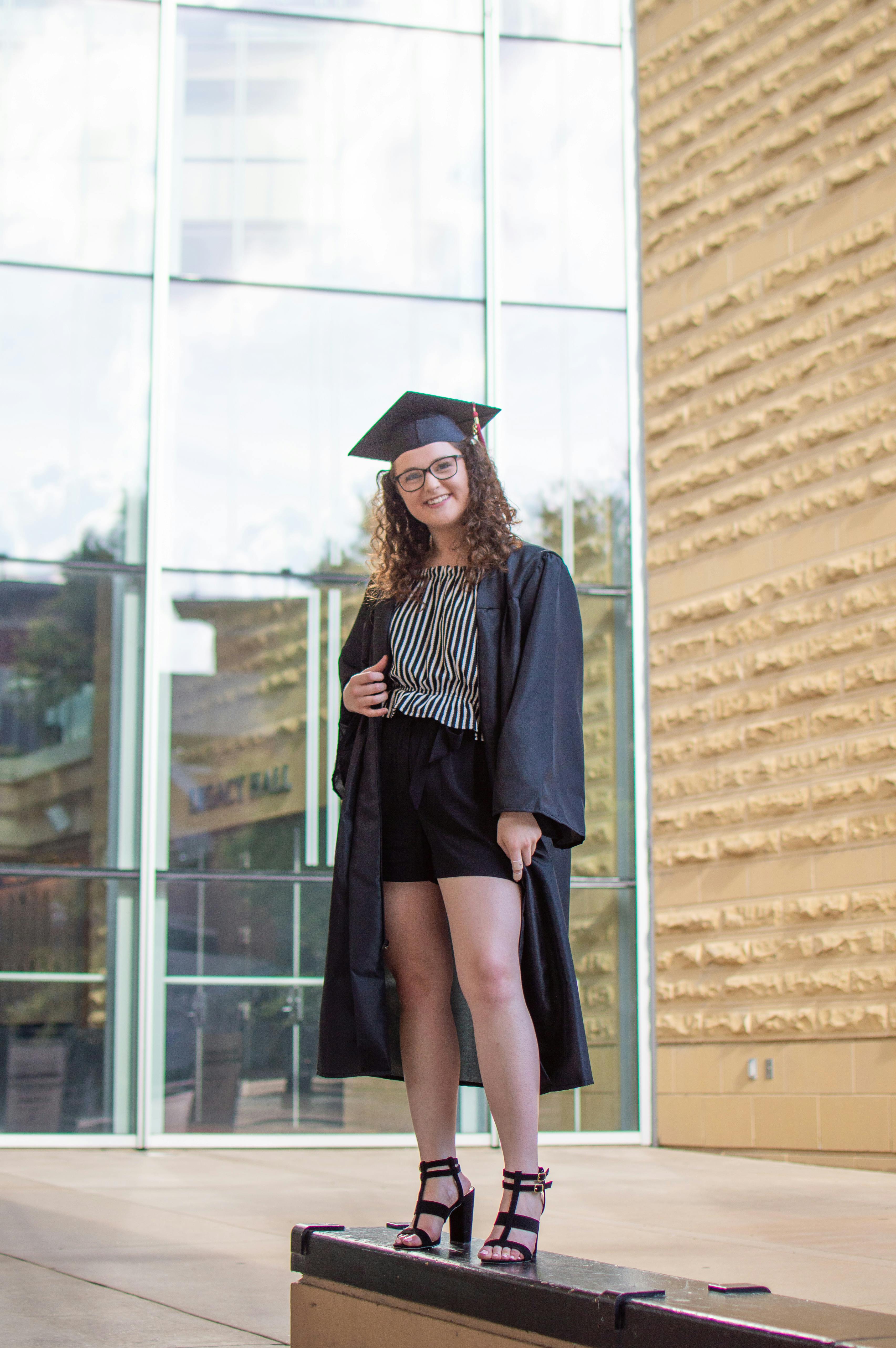
A proud college graduate posing for a picture | Source: Pexels
Both narratives, though distinct in their paths and resolutions, underscore the universal themes of resilience, autonomy, and the quest for recognition. They celebrate the courage to challenge the status quo, to forge one’s path in the face of adversity, and ultimately, to redefine the meaning of success and support on one’s own terms.
Advertisement
Anomama










